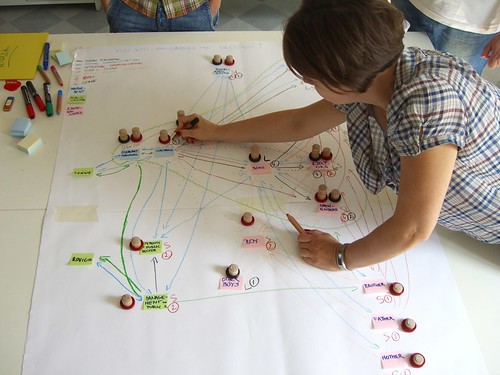 For years, the discussion about responding to climate change was strongly focused on mitigation, that is, how to decrease the greenhouse gas emissions and thus slow down the warming of the climate.
For years, the discussion about responding to climate change was strongly focused on mitigation, that is, how to decrease the greenhouse gas emissions and thus slow down the warming of the climate. However, for some time it has been acknowledged that no matter what we do, we cannot stop climate change anymore. There will be changes in climate no matter what region we’re talking about, and we need to adapt to the quickly changing circumstances. The fact that the changes are also hard to predict doesn’t make the job easier. And while reaching the international climate agreement seems to be further and further away, the global greenhouse gas emissions will keep on increasing and the need for developing new options to adapt to climate change is even more pressing.
On different regions, the impacts of climate change will vary greatly. In the Baltic Sea Region, the most imminent impacts include changes in precipitation, flood patterns and rising sea level that all can affect the built environment as well as water availability and quality. What makes Baltic Sea Region vulnerable to the impacts of climate change is that most of the cities and population are concentrated on the coastal areas. BaltCICA project is working to find new, local and regional options to adapt to these changes. Work is being done to draft climate scenarios and assessing the possible adaptation options in cooperation with stakeholders.
In May, I attended a conference titled Coping with Climate Change. It was organised by the projects BaltCICA and MARE. There was a lot of discussion about adaptation from a practical and technical point of view. However, in my opinion the most interesting point was made by Professor Karen O'Brien, who stressed the need for changing our views about adaptation. Instead of seeing the challenge of adaptation as a merely technical problem, a “to do list”, values, beliefs and worldviews should also be considered in order to improve the so-called adaptive capacity, the ability to adapt to changing conditions.
The conference was part of a series organised by the BaltCICA project. The third and final conference will take place at the beginning of 2012, in Helsinki. The conference focuses on applied climate change adaptation, and cities and regions present their solutions and approaches for these challenges. The discussion continues!
Photo: Kirsi-Marja Lonkila. The conference host city Bergen, also known for it plentiful annual rainfall.
Kirsi-Marja Lonkila




